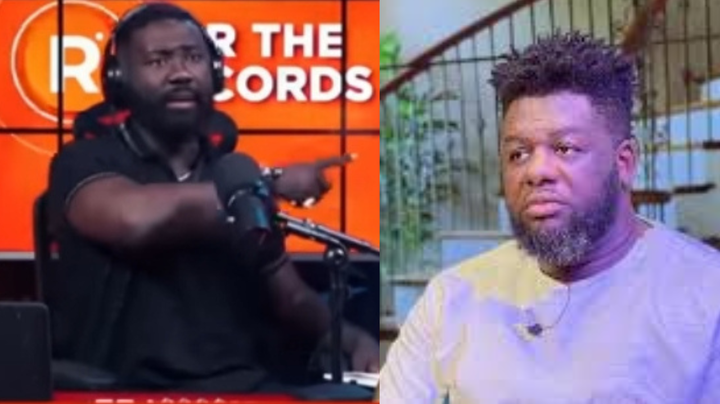Okatakyie Afrifa has once again stirred the media waters, this time taking aim at artist manager and pundit Bulldog over what he calls sheer hypocrisy and political theater. The latest verbal clash follows a heated back-and-forth triggered by Afrifa’s pointed question: How did Sharaf Mahama, son of the former president, secure the funds to organize a high-profile boxing event featuring international icons like Anthony Joshua?
Rather than address the question head-on, Bulldog and his associates reportedly took to the airwaves to ridicule Afrifa, accusing him of peddling unfounded conspiracy theories and engaging in needless provocation. However, Afrifa didn’t flinch. Instead, he escalated the confrontation by claiming Bulldog has been compromised by political loyalty. He alleged that the entertainment figure has become a “media mercenary,” paid by the opposition NDC to defend the party’s image at all costs—even when the actions in question defy logic or morality.
Afrifa’s label of Bulldog and his crew as individuals with “small minds and big heads” sharpened the narrative, quickly gaining traction among both fans and critics. Social media platforms exploded with reactions, with some users applauding Afrifa for being bold enough to call out perceived political puppetry in the creative arts industry.
Afrifa insisted that his critique was not rooted in malice but in the need for public accountability. He questioned why it should be taboo to ask a former president’s son about the source of his extravagant sponsorship budget, especially when ordinary Ghanaians are struggling to make ends meet.
The saga touches a deeper nerve in Ghana’s media and political landscape, highlighting how lines between entertainment, politics, and influence are increasingly blurred. Afrifa’s supporters argue that his brash style forces uncomfortable but necessary conversations, while critics believe he often oversteps, sacrificing decorum for shock value.
Regardless of which side one takes, it’s clear that this clash isn’t just a personal feud—it’s a mirror reflecting broader tensions about transparency, loyalty, and integrity in public discourse. And as voices like Afrifa’s continue to challenge the status quo, the Ghanaian media space is bound to stay as fiery and unpredictable as ever.
